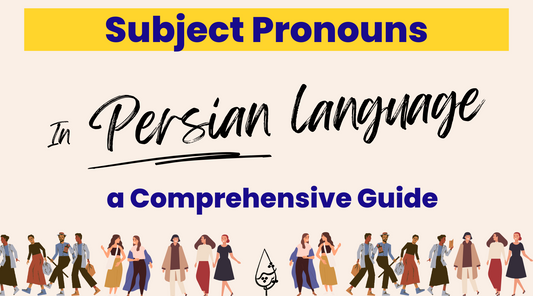Have You Ever Been to an Aroosi-ye Irāni (Iranian Wedding) and Didn’t Know What to Say to the Newlyweds?😁
At Iranian weddings, one of the most heartfelt things you can say to the happy couple is "Khoshbakht beshin, ishāllā" (literally: “May you be fortunate, God willing”). You can drop the last part, ishāllā, if you want.
But what does this expression really mean, and why is the word khosh used in so many other Persian words like khoshgel (good-looking) or khoshhal (happy)?
Let’s break it down!
Khoshbakht Beshin Ishāllā: Breaking It Down
Khosh + Bakht + Beshin + Ishāllā
1-Khosh (خوش)
The word khosh is often used as a prefix in many positive words. It means "good," "pleasant," or "happy," and you’ll find it used in various contexts, such as:
- Khoshgel (خوشگل): Beautiful, good-looking
- Khoshhāl (خوشحال): Happy, delighted- khosh + hāl (mood, state)
In all of these cases, khosh gives the word a positive, joyful, and good-energy vibe. It’s as though the word is blessed with the essence of joy and positivity.
Full guide for pronouncing 'kh' خ in Persian
2. Bakht (بخت)
In Persian, bakht means "fate" or "fortune." It’s used to refer to the twists of life, both good and bad. If someone is badbakht (unfortunate), it means they are experiencing hardship, misfortune, or "bad luck." On the other hand, khoshbakht (fortunate) is used for someone who has good fortune or luck on their side. Bakht isn’t just about luck—it ties into a deeper philosophical concept of destiny, fate, and the unseen forces that shape our lives.
- Bad+bakht: Describes someone who is constantly unlucky or in unfortunate circumstances. They seem to attract misfortune.
- Khosh+bakht: The opposite, describing someone fortunate or someone who enjoys a happy fate.
Bakht even shows up in Persian proverbs, like:
"Bakht-am bāz shodeh" (My fortune has opened) when something good happens (usually finding your other half and getting married) , or "Bakht-am siyāh-e" (My fortune is black) when things aren't going well.
3- Beshin (بشین)
"Beshin" comes from the verb "shodan" (to be, to become), meaning "to become" or "may you become." So when we say "Khoshbakht beshin," it means "may you become fortunate." It’s a lovely way to offer blessings and good wishes.
4- Ishāllā (إن شاء الله)
This phrase, derived from Arabic, translates to "God willing" or "If God wills." It reflects a deeply held belief in Persian culture and many other cultures, acknowledging that the outcome of events, both good and bad, is ultimately in God's hands. When you use this phrase, you’re expressing your best wishes while acknowledging that everything is subject to divine will. It’s a beautiful way to offer hope and blessings, without attempting to control the future.
Pronunciation Note: While the formal Arabic pronunciation is "inshā'allāh" (إن شاء الله), it’s commonly pronounced "Ishāllā" in colloquial Persian and other languages of the region. This slight variation in pronunciation is a reflection of how languages evolve and adapt in different cultural contexts, but the meaning remains unchanged.
How "Bakht" Shapes Everyday Life
In Persian culture, bakht isn’t just about luck; it's deeply tied to the ideas of destiny and the forces beyond our control. When someone experiences an unexpected stroke of good fortune, they might say, bakht-am bāz shodeh ("My fortune has opened"). Alternatively, after a series of unlucky events, someone might express bakht-am siah-e ("My fortune is dark").
In classical Persian poetry, bakht is often discussed in terms of love, destiny, and the uncertainty of life. Poets like Hafez and Ferdowsi use bakht to reflect on the nature of life’s twists and turns, and how everything in life—good or bad—is shaped by the whims of fate.

Final Thoughts
The next time you attend an Iranian wedding or meet someone experiencing good fortune, you’ll know exactly what to say: "Khoshbakht beshin, inshallah." And now, you’ll also understand the deeper significance of these words and how they reflect a larger philosophical view of life, fate, and luck.
I hope you always feel 'khoshbakht' with every aspects of your life.
Bā eshgh,
Shirin




